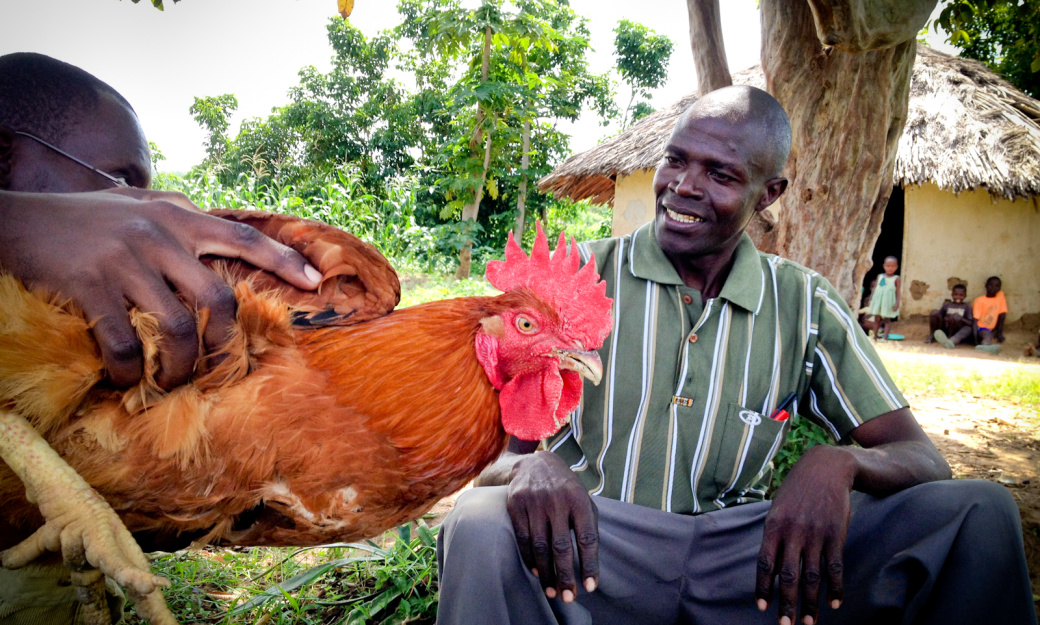
GiveDirectly makes unconditional cash transfers to people via mobile phones—this man in Western Kenya used the money to start a business raising and selling chickens. Photo by Jacob Kushner.
Each year, individuals donate hundreds of billions of dollars to charities. Last month, GiveWell, the science-minded philanthropy evaluator, announced that in 2015, as a direct result of its research, more than $98 million in donations went to charities it found to be the most effective at doing good in the world. By reviewing randomized control trials and other studies conducted on different development aid programs across the globe, GiveWell recommends a few “top charities” whose methods have been scientifically tested to offer the most bang for our buck.
A control trial is an experiment that tests one variable at a time, and compares the results to a control group. Random means that instead of letting participants come to you, you go to them, assigning them randomly to either the test group or the control, to avoid self-selection bias.
This is the way that major pharmaceutical companies vet new medicines or advertising agencies test audience reactions to proposed TV commercials. The CDC wouldn’t approve a new drug from Merck simply because Merck says it works and can offer a couple of anecdotes to that end, but unfortunately, that’s how many charities appeal to individual donors. Why is it that when it comes to development aid, our standards are so much lower?
That’s the question being posed by a growing number of “effective altruists,” a term popularized by the Australian philosopher Peter Singer. “Effective altruism,” writes Singer, “is based on a very simple idea: we should do the most good we can.”
Read the full article at Columbia Global Reports.